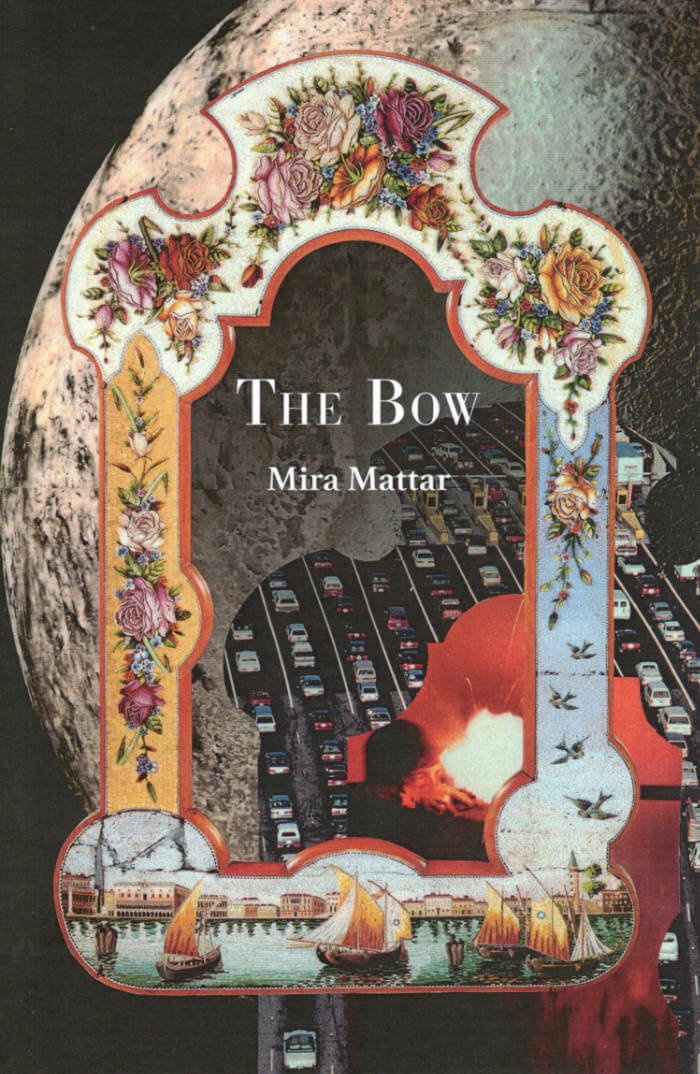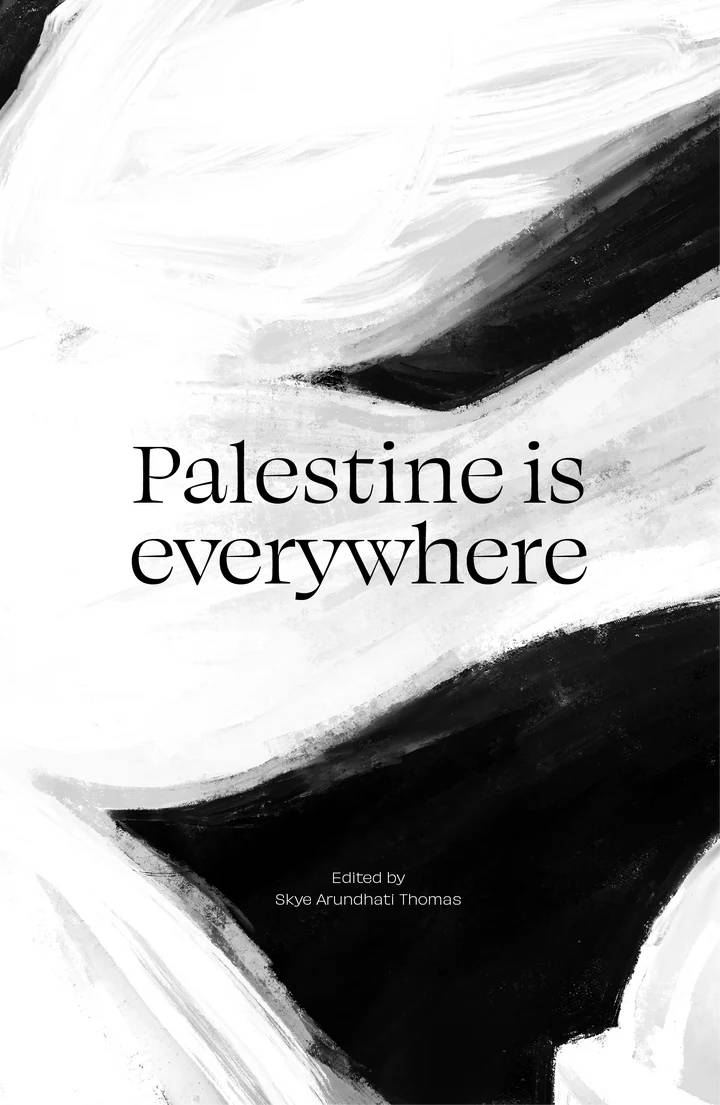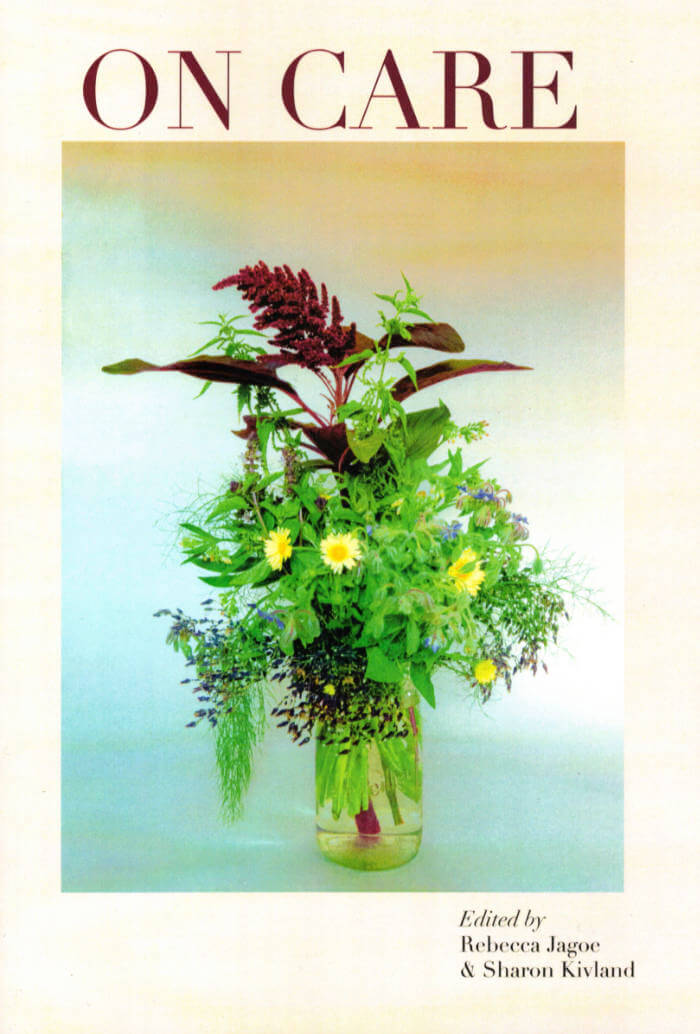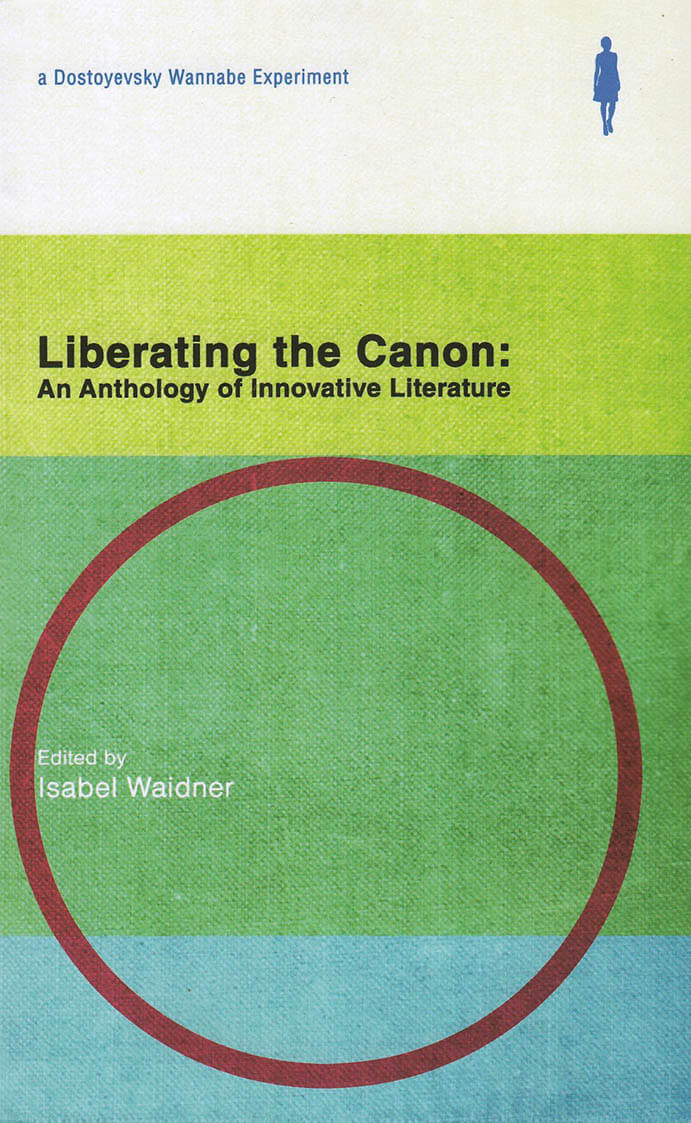Mira Mattar
Mira Mattar

The Bow
The Bow is a collection steeped in the pains and pleasures of impermanence. Mattar’s densely populated poems lyrically dart between entangled histories and contested presents, immersing the reader in the fleshy undercurrent of contemporary life. Writhing with sensitivity and tumult, this is a work of slippery power. – Momtaza Mehri
Taking on false conceptions of mistaking “a walled garden for the world,” Mira Mattar proves the always new and always ancient tools of poetry help us love the world as it is, not as it was, and not as we wished or hoped. These poems destroy lies to buzz around us no more. – CAConrad
Mira Mattar writes fiction and poetry. She is an independent researcher, editor, and tutor. She is a Palestinian and Jordanian from London, where she lives and works. Her novel, Yes, I Am A Destroyer was published in 2020 by Ma Bibliothèque and her chapbook, Affiliation, was published in 2021 by Sad Press. The Bow is her first collection of poems.

Yes, I Am A Destroyer
I travel far across the city, cut it knowingly, concealing behind me the entrances to tunnels, altering the signage. I traverse the grimiest bowels, skirt the farthest wettest edges like a silverfish active only in the hallucinatory hours, to avoid becoming known, to avoid any collusion between my body and theirs, its.
Under the neon sky of a sick city, which might be London, a nameless governess oscillates between lucidity and dissociation, solitude and communication, wage labour and escape attempts. A wild and unreliable narrator-without-character—ardent, delirious, complicit, vengeful, and paranoid—she embodies a perverse and chaotic resistance. Simultaneously demonic and angelic, both maniacal and generous in her fury, accidentally elegant, tongue tied and barbed, she veers towards defiance as devotion. An anti-Bildungsroman in the collapsing first person, Yes, I Am A Destroyer is an unbecoming record of memory and forgetting, of a relentless undoing.
‘Any girl who learns how to read is already a lost girl, wrote the infamous confessionalist Rousseau. But if that lost girl, with insatiable pronoun, bastard spawn perhaps of the exiled Genevan, palmed a pen and confessed—how would that read? What can she know? With relentless intelligence and urgent prosody, Mira Mattar shows us. She invents a narrator in the raging anti-tradition of Violette Leduc and Albertine Sarrazin, leaps beyond the cloying contract of capital with the feminine, of intimacy with violence, to animate a lush document of the refusal of subjection. Much like the young Jean-Jacques, she’s a tutor underpaid for her sensitivity. She is, like him, a thief of small things, a sponge for the edifying comportments of the employing class. What she makes of her servitude—a fabulously grotesque encyclopedia of sensing—is dedicated to female anger. Scrubbing, washing, chewing, frigging, barfing, stealing, moisturising, shitting: every surface, every gesture, is appropriated to her bodily resistance. ‘Live anyway’ is her stoic motto. This glorious tract ends with a call for the anarchical vigour of the animal body we share. Read it and flourish. You will perhaps be invoiced.’
–> Lisa Robertson
Mira Mattar writes fiction and poetry. She is an independent researcher, editor, and tutor. A Palestinian/Jordanian born in the suburbs of London, she continues to live and work there. She has read and published her work widely. Yes, I Am A Destroyer is her first book.
And more

Tripwire 15 - Narrative/Prose
Narrative/Prose issue, featuring a special section: I was writing, but it was drawing: a Renee Gladman mini-feature with work by Renee Gladman * Earl Jackson, Jr. * Bruna Mori * Alexis Almeida on Renee Gladman & Julie Carr * Lewis Freedman & Vanessa Thill on Renee Gladman & Mirtha Dermisache. as well as work by Isabel Waidner * sissi tax (translated by Joel Scott & Charlotte Theißen) * Susan Hefuna * Mira Mattar * Lital Khaikin * Maryam Madjidi (translated by Ruth Diver) * Omer Wasim & Saira Sheikh * Ilse Aichinger (translated by Christian Hawkey & Uljana Wolf) * Bronka Nowicka (translated by Katarzyna Szuster) * Maude Pilon (translated by Simon Brown) * Mehmet Dere * Syd Staiti * Jena Osman * Germán Sierra * Natani Notah * Julia Bloch on Bernadette Mayer * Robert Glück on Clarice Lispector * Rob Halpern on Bruce Boone & Dennis Cooper *Dylan Byron on/after Bruce Boone * Linda Bakke on Communal Presence: New Narrative Writing Today * Anna Fidler * Corey Zielinski on Bob Glück & Writers Who Love Too Much: New Narrative 1977-97 * Jackie Kirby on From Our Hearts to Yours: New Narrative as Contemporary Practice * David W. Pritchard on Kevin Killian * Dale Enggass on Simone White * Allison Cardon on Anne Boyer * Robert Balun on Leslie Kaplan * Marco Antonio Huerta on Omar Pimienta * Allison Grimaldi Donahue on Josué Guébo * Sara Florian on Lasana Sekou * Louis Bury on Allison Cobb * Hugo Gibson on Annie Ernaux.

Palestine is everywhere
‘Palestine is everywhere because it names a political subject of radical universal emancipation,’ writes teacher and writer Nasser Abourahme. In Palestine is everywhere, writers, thinkers, poets and artists map the Palestinian struggle for freedom and its global resonances.
Vital dispatches from Gaza, essays, poems, protest chronicles, images and letters from prison reflect upon resistance, solidarity and the right to self-determination. Amid a world-historical moment marked by unknowability and loss, this collection offers essential reading for those interested in Palestinian liberation.
This collection is edited by Skye Arundhati Thomas, with contributions from Alaa Abd El-Fattah, Nasser Abourahme, Amal Al-Nakhala, Muhammad Al-Zaqzouq, Maisara Baroud, Ahmed Bassiouny, Houria Bouteldja, Anees Ghanima, Sahar Khalifeh, Laleh Khalili, Lujayn, Mira Mattar, Lina Meruane, Mohammed Mhawish, Nahil Mohana, Rahul Rao, Nasser Rabah, Adam Rouhana, Ahmad Zaghmouri.
Co-published by TBA21.
All royalties from this project will be donated to Medical Aid for Palestinians (MAP) and The Arab Group for the Protection of Nature (APN).

On Care
Care is a matter of responsibility for human and nonhuman allies, an ecological network. Care is an imperative, and acting with care approaches the world beyond selfhood. ON CARE, an aggregate of voices, discusses the politics of caring, support, and the role of welfare in an increasingly neoliberal society. It questions who is seen as worthy of care, whose narratives are given attention, and whose lives are overlooked in a complex web of assemblages: conceptions of medical authority, the co-option of self-care in political rhetoric, care as a commodity in the hospitality industry, intergenerational intimacy, sexecology; care as utopian and care as transactional. ON CARE maps a constellation of perspectives, as testaments, fictions, and essays, addressing the relation between good health, interdependence, and the ethics of (self)care.
Contributors: Tom Allen, Uma Breakdown, Alice Butler, Oisín Byrne, Julia Calver, Jamie Crewe, Juliette Desorgues, Rachel Genn, Laura Godfrey-Isaacs, Laura González, Holly Graham, Helen Hester, Justin Hogg, Juliet Jacques, Mati Jhurry & Rebecca Jagoe, Juliet Johnson, Sophie Jung, Daisy Lafarge, Elisabeth Lebovici, Rebecca Lennon, Rona Lorimer, Katharina Ludwig, Mira Mattar, Martina Mullaney, Cinzia Mutigli, Carolina Ongaro, Molly Palmer, Roy Claire Potter, Nat Raha, Helena Reckitt, Ruiz Stephinson, Erica Scourti, Victoria Sin, Himali Singh Soin & Tyler Rai, Miguel Soto Karlovic, Isabella Streffen, Jamie Sutcliffe, Maija Timonen, Lynn Turner, Rosa-Johan Uddoh, Daniella Valz Gen, Nina Wakeford, Alberta Whittle

How to Become Irrésistibles
How to become Irrésistibles est une édition de l'école supérieure des beaux-arts de Bordeaux réalisée avec la maison d'édition How to Become.
Cette édition est née de l'énergie d'un groupe d'autrices étudiantes de l'école des beaux arts de Bordeaux. Elles (car il s'agit d'une majorité de femmes) se rassemblent dans les séminaires Irrésistibles – briser les cases (art-femmes-territoires) dirigés par Marie Legros, artiste et professeure. Ce séminaire a été créé par cette dernière en 2016 afin d'encourager les pratiques féministes dans l'écriture. Qu'est-ce que c'est ? Des façons autres d'écrire le genre (l'identité) et les genres (littéraires), la langue (nationale) et de faire entrer du commun dans l'écriture (en arrêtant d'en exclure les femmes, les homos, les personnes racisées, les prolos). Les étudiantes qui participent à ce séminaire, issues de nationalités différentes, s'en sont saisis pour tordre la généalogie poétique franco-française masculiniste. L'autrice et éditrice sabrina soyer (éditions How to become), invitée à prendre part aux recherches dans ce séminaire, a coordonné cet ouvrage en l'axant sur des échanges de traduction entre autrices et l'usage du français comme langue étrangère. Le livre explore – c'est à dire donne de la valeur à – différentes formes de contacts entre auteurices : traductions, réponses adressées, écriture sous influence ou fan fiction... Chaque langue et voix se tisse en écho à une autre, pas de poèmes isolés, un grand texte comme un grand corps amassé par rebonds et frottements.
Avec : Hani Yikyung Han, Nayun Eom, Charles Dauphinot, Layan Qarain, Viktoria Oresho, Samuel R. Delany, Seobin Park, Jie Liang, Rami Karim, Yu-Wen Wang, Ching-Chuan Kuo, Mélanie Blaison, Barbara Sirieix, sabrina soyer, Yan Tong Liu, Jessica Guez Karen Johanns, Marie Legros M, Esther Sauzet, Mira Mattar.

Liberating the Canon
Liberating the Canon is an edited anthology capturing the contemporary emergence of radically innovative and nonconforming forms of literature in the UK and US. Historically, sociopolitical marginalisation and avant-garde aesthetics have not come together in UK literature, counterintuitively divorcing outsider experience and formal innovation. Bringing together intersectional identity and literary innovation, LTC is designed as an intervention against the normativity of literary publishing contexts and the institution 'Innovative Literature' as such. More widely, if literature, any literature, can act as a mode of cultural resistance and help imagine a more progressive politics in Tory Britain and beyond, it is this.
Contributors are Mojisola Adebayo, Jess Arndt (US), Jay Bernard, Richard Brammer, Victoria Brown, SJ Fowler, Juliet Jacques, Sara Jaffe (US), Roz Kaveney, R. Zamora Linmark (US), Mira Mattar, Seabright D.Mortimer, Nat Raha, Nisha Ramayya, Rosie Snajdr, Timothy Thornton, Isabel Waidner, Joanna Walsh and Eley Williams.
Isabel Waidner is a writer and cultural theorist. She is the author of three books of innovative fiction, most recently Gaudy Bauble (Dostoyevsky Wannabe, 2017), which is currently longlisted for the Republic of Consciousness Prize for "hardcore literary fiction and gorgeous prose". Her articles and short fictions have appeared or are forthcoming in journals including 3: AM, Berfrois, Configurations, The Happy Hypocrite, The Quietus and Minor Literature[s]. She is also the editor of Liberating the Canon: An Anthology of Innovative Writing (Dostoyevsky Wannabe, 2018) which explores the relationship between identity, intersectionality and innovation in literature. As part of the indie band Klang, Waidner released records on UK labels Rough Trade (2003) and Blast First (2004). She is a lecturer in English and Creative Writing at Roehampton University, London, UK.